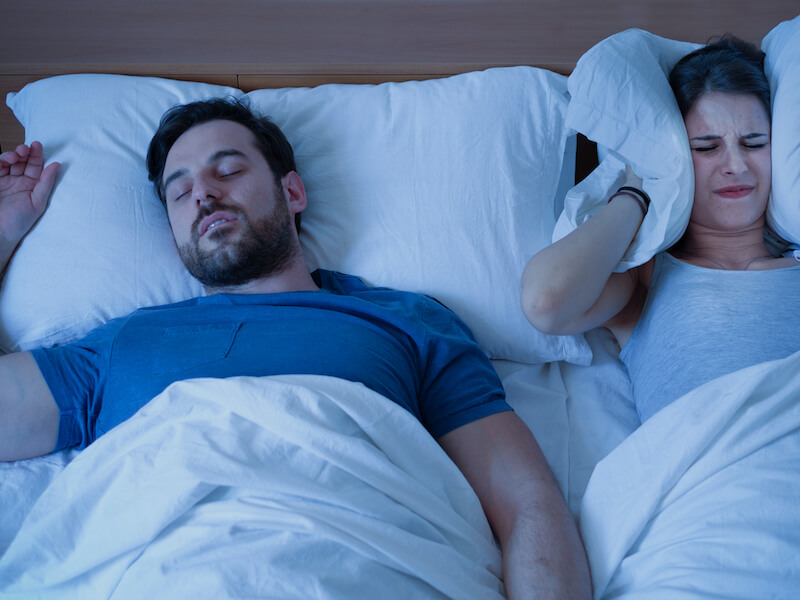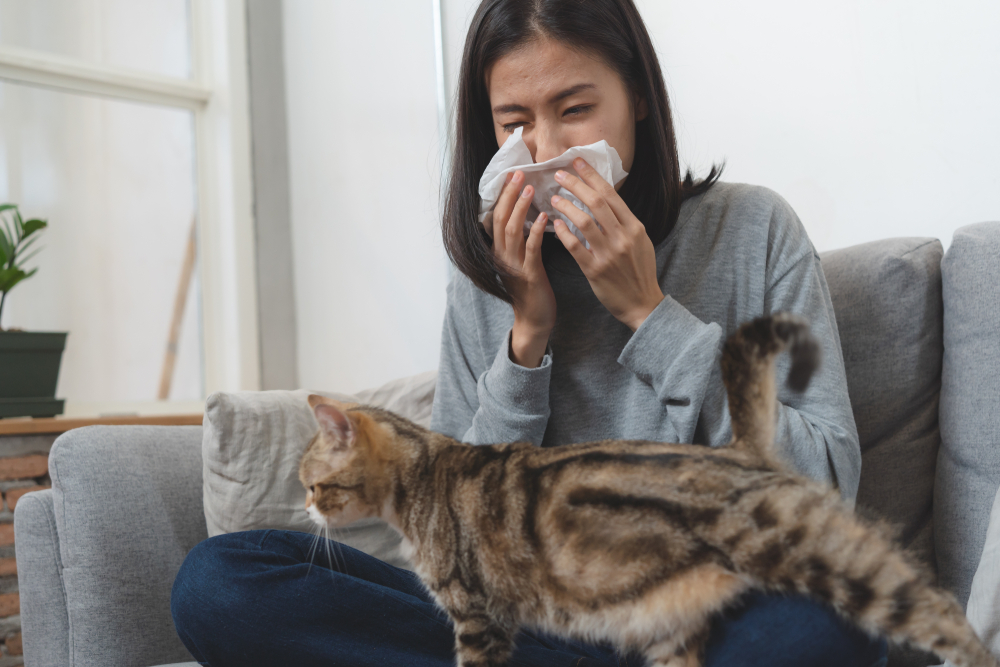You ever have one of those dreams where you’re back in school–maybe as a contestant in a spelling bee? You’ve done pretty well–it’s down to you and one other competitor. And then… the judges give you your word: uvulopalatopharyngoplasty. And suddenly it doesn’t matter how well you have prepared. That is one tough word to spell (even for an amazing, non-dreaming speller).
Funny enough, uvulopalatopharyngoplasty is not a made up word. It really exists. Turns out uvulopalatopharyngoplasty (called UPPP for short, mercifully) is a medical procedure designed to help treat obstructive sleep apnea.
Typically, this surgical procedure is used when other, more conservative approaches haven’t quite worked or produced the desired effects. For those patients, UPPP can provide a viable way to diminish your obstructive sleep apnea symptoms–and help you get a good night’s rest.
What is Uvulopalatopharyngoplasty?
Sleep apnea can have a wide variety of causes. But for many people, this sleep disorder is caused by your body’s own tissues. These tissues relax, sag, and form an obstruction of your airways. As a result of this obstruction, you start snoring–and you stop breathing. In this way, sleep apnea can disrupt your regular sleep schedule.
This means you can feel tired all the time, wake up often (or with headaches), and be just generally miserable. Sleep apnea has even been known to cause death on occasion (and respiratory disorder should be treated seriously).
During a UPPP procedure, your surgeon will remove a significant portion of tissue from your throat. The idea is that removing this excess tissue will also remove the obstruction from your airway. This approach was first developed in 1981, and since that time, it’s become an ever-more-effective option for a certain set of sleep apnea patients.
How do you know if UPPP is right for you?
UPPP isn’t right for everyone or for all types of breathing disorders. In fact, to be a good candidate for UPPP, it’s important for you to have the right type of sleep apnea. Further, only those who have Stage 1 obstructive sleep apnea will likely be helped by this surgery.
Your ENT or provider may want to make sure that you’ve exhausted all other treatment options. In general, UPPP may be right for you if:
- You suffer from obstructive sleep apnea, and this sleep apnea has a negative impact on your overall quality of life.
- Your physician has diagnosed you with Stage 1 obstructive sleep apnea. People with Stage 2 or Stage 3 sleep apnea are not good candidates for this procedure.
- Your sleep apnea is caused at least in part by structural issues around your airways, especially in regards to your soft palate and your tonsils.
- You have tried other therapies but found they do not work for your symptoms. This could include a CPAP machine or other treatments as well.
- You have tried to moderate your sleep apnea by losing weight or lowering your BMI, but this has not achieved the desired results.
If you have a sleep-related breathing disorder, it’s critical to find the right treatment. Your ENT will be able to examine your symptoms and provide you with a diagnosis. At that point, you’ll be able to discuss and develop a treatment plan that’s unique to you.
What happens during a UPPP procedure?
UPPP is a surgical procedure, typically performed under general anesthesia. Before the procedure begins, your surgeon will determine which areas of your airway are creating the largest obstructions. (Essentially, they’ll figure out where all that excess tissue in your throat is coming from.) Every patient is a little bit different in this regard.
During a UPPP surgery, your surgeon will remove tissue from the following areas:
- The uvula–that ball of tissue that hangs down from the top of your mouth.
- The soft palate, which forms the roof of your mouth towards the back of your mouth.
- Excess tissue from around the throat. This might include your tonsils and adenoids if you still have them.
- It’s possible that your surgeon may also remove tissue from your tongue. Removal of tongue tissue is actually a separate procedure called uvulopalatopharyngoglossoplasty (which is also quite the tongue twister–uh, no pun intended). If you’re a good candidate for this procedure, it’s something your surgeon will discuss with you well in advance.
Once the tissue is removed, your surgeon will close the incisions with sutures. UPPP is often performed on an outpatient basis, but an overnight stay in a hospital is sometimes required. (There are many variables here, so it will depend on your surgeon, your health, and your local healthcare setting.) Your surgeon will want to make sure you can swallow normally before sending you home.
How do you get ready for your UPPP procedure?
As with any surgical procedure, you may have to take several steps to prepare for your UPPP appointment. You will likely discuss these steps with your surgeon long in advance, so nothing should be too surprising.
Your pre-operative instructions may include:
- Making sure to stop taking certain medications, especially over the counter pain relievers such as aspirin or ibuprofen (you want to avoid any blood thinners not approved by your surgeon).
- Your doctor will provide you with a full list of what to stop taking and what to keep taking.
- You may be asked to fast for several hours before your procedure.
- You will also need someone to drive you home from the operation, especially if you are undergoing your UPPP surgery on an outpatient basis.
- You will be given instructions to tell your surgeon if you get sick–even with a cold. This may delay your procedure.
- You may be asked to take certain medications on the day of your procedure.
Your provider will give you all of this information well before your surgical date, but be sure to ask any and all questions you have along the way.
Recovery and post-operative Care
The length of your recovery from UPPP surgery will vary, depending on how much tissue has been removed by your surgeon. In general, however, you can count on at least 2-4 weeks of recovery time.
You should avoid vigorous activity during the first week or two, but you should make sure that you don’t remain too sedentary. In other words, you want to keep moving and walking around, as this will help prevent blood clots from forming.
For the first 1-3 weeks, most patients will:
- Be required to use a salt-water based mouthwash in order to prevent infections.
- Be restricted to soft foods. Immediately after your surgery, you will be restricted to clear liquids, but when you feel ready you’ll be able to move up to soft foods. You’ll probably stick with soft foods until your provider gives you the okay to move ahead.
- Experience a sore throat. This sore throat may continue for several weeks after your procedure.
If you have any questions about your recovery and what to expect as you heal, make sure to ask your provider. You will probably have a follow up appointment with your ENT sometime after 2-3 weeks to assess how you’re healing and what you might expect from your sleep apnea moving forward.
Complications from UPPP
As with any surgical procedure, there are risks and complications that can be associated with UPPP. Some possible complications are significantly more common than others, although most complications are rare. In general, complications can include:
- Bleeding or swelling of the area that was operated on.
- Infection.
- Blood clots.
- Changes in your voice: Your voice may sound different after your procedure. If you have had tissue from your uvula removed, you may have trouble making what are called uvular consonants, which are especially common in Dutch, French, Hebrew, Swedish, and other languages. (These are the consonants with the dots or lines across the tops of them.)
- Liquid may travel up your nose when you drink: This is caused by a complication called velopharyngeal insufficiency. And it essentially means that the soft palate and throat are not coordinating enough when you swallow. This side effect is usually temporary when it occurs.
- Scar tissue: Once your procedure is complete, scar tissue can build up around the incision sites. In some cases, this scar tissue can cause your throat to feel closed in or irritated or like you have something stuck in your throat. This complication is rare, and it may require additional surgery to fully correct it.
Be sure to talk to your surgeon about all the possible risks from UPPP. Your surgeon should be happy to answer your questions and make sure you’re informed!
Does UPPP Work?
So, after all that, one of the most common questions boils down to something simple: does UPPP surgery work? And what can patients expect when the procedure is over? The answer is that for the vast majority of well-qualified patients, UPPP does offer significant and lasting relief from obstructive sleep apnea symptoms.
(Again, this procedure isn’t for everyone. For candidates that aren’t as great a fit, the benefits of UPPP may only last for a few years.)
Once the procedure is complete, you may experience:
- Less snoring.
- More restful sleep.
- Fewer headaches.
- An improved ability to focus throughout the day.
- More energy.
- And more.
For some people, UPPP will completely eliminate your need to use a CPAP machine. For others, symptoms may improve, but you still may need to use your CPAP machine. Your symptoms will continue to be monitored after your procedure.
Is UPPP my only choice?
Surgery is definitely not the only way to treat sleep apnea. For some people, it may be a good option, especially if other therapies have not yielded the desired results or relief from symptoms. In most cases, the choice whether to pursue UPPP is up to the patient and the provider, and it certainly takes into account the comfort level of the patient.
That said, it’s important to remember that UPPP is only effective in a very specific set of patients for a very specific set of symptoms.
How to sleep better
Obstructive sleep apnea can interfere with your rest cycle–making it harder to get a good night’s sleep even when you’ve been sleeping for over 8 or 9 hours. For people with certain types of sleep apnea, uvulopalatopharyngoplasty can provide a significant and effective treatment.
If you think you have sleep apnea, or you’re having trouble getting a good night’s rest, it’s a good idea to talk to your doctor as soon as possible. Sometimes treating sleep apnea can be a simple fix. In other cases, surgical intervention can provide relief.
The goal is to help you experience a good night’s sleep–whether you’re dreaming about spelling bees or not.
If you think you have sleep apnea, contact an ENT today–find a provider here!



